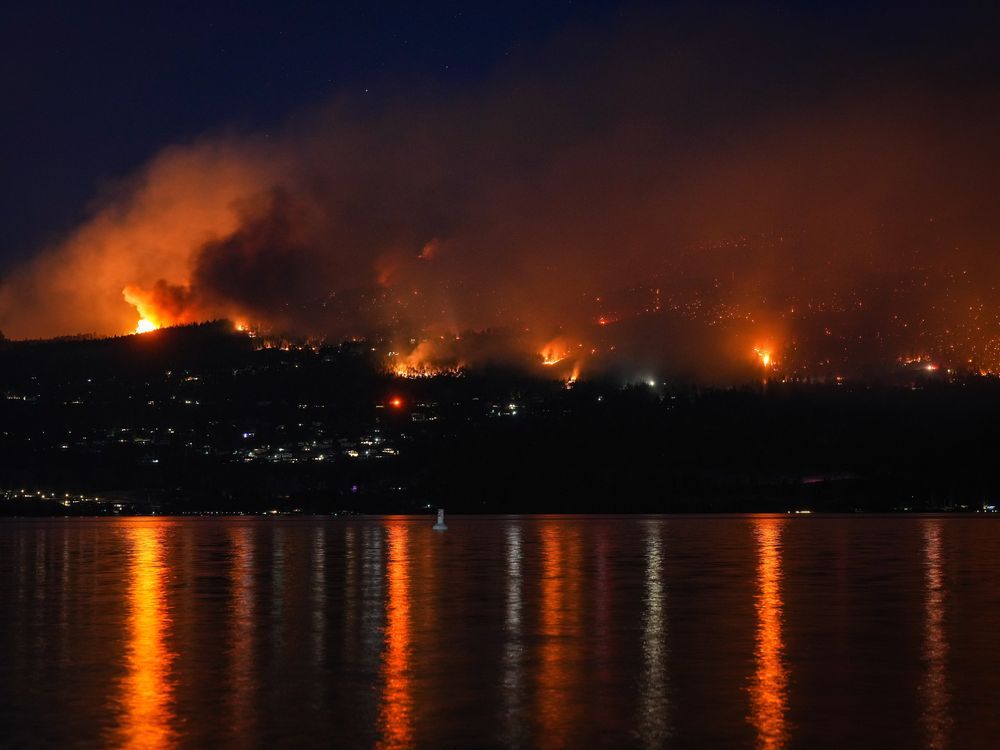According to a new Canadian study, the night has traditionally been a time when wildland firefighters could take a break, but now things are changing due to drought.
The study indicates that extremely dry fuels are the main reason for intense fire behavior and growth at night, and rising temperatures are also reducing the usual limit on overnight burning.
The research uncovered that drought plays a crucial role in determining whether a fire will continue to burn and possibly spread throughout the night, which is important information for firefighting efforts.
One of the study's co-authors in British Columbia, Mike Flannigan, mentions that current fire growth models are not effective at predicting nighttime fire behavior, especially when fires threaten communities.
Mike Flannigan recalls a fast-moving blaze in West Kelowna last year and emphasizes the critical importance of knowing how active a fire will be at night, especially when it's approaching a town.
Wildland firefighters only work overnight when flames pose a threat to people and infrastructure, according to Flannigan.
The study, published in the peer-reviewed journal Nature, suggests that relying on nighttime reprieve is increasingly risky as climate models forecast hotter and drier summers, which are ideal conditions for wildfires.
Canada's drought bulletin shows severe drought in central B.C. and southern Alberta, with moderate to severe drought conditions in other areas of both provinces according to the Feb. 29 update.
Flannigan, a professor at Thompson Rivers University, is worried about overnight burning this summer due to the dry conditions.
The study examined over 23,500 wildfires across North America from 2017 to 2020, identifying 1,095 overnight burning events associated with 340 wildfires, most of which spanned at least 10 square kilometers.
The study attributes the overnight burning to dry forest fuels such as grasses, fallen leaves, twigs, and branches.
The research team led by Kaiwei Luo at the University of Alberta found that overnight burning often occurred within two days of ignition.
Flannigan notes the significance of this, as it's a critical time for mobilizing firefighting resources to contain the flames.
The study also discovered that 85 percent of all overnight fires burned for consecutive days or even weeks at a time.
The scientists didn’t just connect drought to nighttime burning. They also made models to see if they could predict it, which could be a powerful tool, and found that daytime conditions set the stage for what happens at night.
“On that day, you can predict whether there is a high chance of burning overnight and get ready accordingly,” Flannigan says about the new modeling.
Flannigan collaborates with the predictive services branch of the B.C. Wildfire Service and mentions that the researchers will offer their model for testing this summer.
“Not every year will have a lot of fires. Some years will be cooler, and some will be wetter,” he says. “But on the whole, we’ll experience hotter, drier summers, which create conditions more favorable for fires.”
“We should focus on … firefighting during the day and night,” he says. “Instead of being rare or infrequent, it will become much more common.”
B.C. has not yet updated its drought information portal for this year, but the latest update from November indicates severe drought in much of northern B.C., and the snowpack throughout the province has been lower than usual all winter.
Related
- B.C. wildfire season: Be ready for an early, intense struggle as drought continues
- Study finds that inaccurate data about forest fuels could fuel B.C. wildfires



